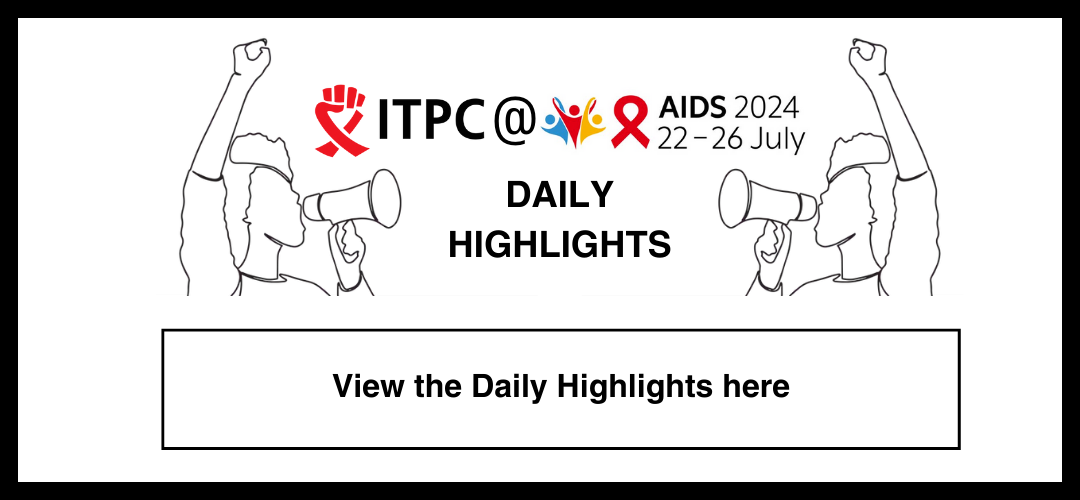MAY 29TH, 2015.
FOR IMMEDIATE RELEASE
Today, human rights campaigners call for improved and regular access to HIV treatment in Sierra Leone, following the Ebola crisis. The International Treatment Preparedness Coalition – West Africa (ITPC-WA) joined forces with The Network of HIV Positives in Sierra-Leone to survey people living with HIV. They found that the Ebola Virus Disease (EVD) weakened already inadequate supply systems, causing severely reduced access to anti-retroviral treatment (ART) services for people living with HV (PLHIV) in Sierra Leone. An interruption in the supply of treatment can mean an increase in opportunistic infections and illness, a risk of developing resistance to treatment and an increased risk of passing HIV to others.
Health workers deserted ART centers leaving many people living with HIV (PLHIV) unable to get replenishments of their anti-retroviral drugs (ARV). Quarantine measures by the government to contain the spread of Ebola has seriously disrupted the drug supply chain, sometimes at the central store house (LAKKA) store levels and from LAKKA stores to Peripheral Health Units. Movement and transport was restricted in the quarantined zones forcing PLHIV to travel across their zones to access treatment. The majority of health care workers are reluctant to go to work for fear of contracting the Ebola virus as they are not provided with personal protective equipment. Other PLHIV were afraid to attend ART centers and be suspected of being infected with Ebola, as some symptoms of Ebola are similar to those of HIV/AIDS.
Community treatment activists raised concerns about the high number of patients who have had their treatment interrupted, in an initiative organised by ITPC-WA, as part of the STOP project. The STOP project is funded by the German government and ITPC-WA to help people living with HIV to contribute to and assess the challenges of accessing HIV treatment. “At time you have to go off your ARVs for days repeatedly and our health is not really improving. We are treated this way because we are PLHIV “said a female participant to the Community Treatment Advocates training. The Community Treatment Observatory’s focal point in Sierra-Leone, Mr. Martin Ellis added: “We were longing for a way to address this endless disruptions in ARVs supplies, now we have this mechanism that will enable us to make our worries heard”. Satisfied he continued: “Now with the STOP project, we have a platform to be part of the solutions to our problems”. The supply chain management of anti-retroviral drug and other commodities in Sierra-Leone was already facing serious challenges before Ebola. Frequently and persistently services run out of the antiretroviral drugs and other commodities needed to provide a decent level of treatment to people living with HIV. According to the research these so called “stock outs” for many weeks at a time, is the result of many factors.
The supply chain management in Sierra-Leone is very weak and is subject to the following constraints:
- Incorrect quantification of ARV and other commodities to purchase;
- Very weak Logistic Management Information System resulting in untimely reporting from Peripheral Health Units to LAKA’s stores and vice-versa;
- Miscalculation of additional drugs and commodities for new enrolled patients to be put on ART;
- Untimely stock level reporting to central medical stores;
- ARV drugs and commodities transport issues seriously affecting timely supplies to Peripheral Health Units and general care points;
- Quarantined measures due to the Ebola outbreak is restricting movements thus complicating the already weak transportation systems to peripheral delivery points.
Specifically Community Treatment Activists are concerned:
- That the drug Cotrimaxole has run out in Sierra-Leone for many weeks;
- That there is no technical committee managing the antiretroviral drug procurement and supply chain management;
- That people living with HIV are not consulted or involved in the design of the supply chain management.
Recommendations:
The International Treatment Preparedness Coalition West Africa and The Network of HIV Positives in Sierra-Leone is calling for:
- The country’s Global Fund, the National AIDS Secretariat and others development partners to assist the Central Medical Stores in dealing with challenges to the supply chain systems;
- Government to urgently involve civil societies which includes people living with HIV and grass-root organizations in the national technical committee on ARVs & commodities.
- All partners to provide technical and financial support to NETHIPS in reinforcing the Community Treatment Observatories aiming at monitoring ART service provisions in the 14 districts in Sierra-Leone, as a strong technical partner to the governmental services.
***
Notes to Editor:
Methodology: The information was collected by Community Treatment Activists following training by ITPC-WA. The activists came from all 14 districts of Sierra Leone. Information was collected through desk and literature reviews and questionnaires to selected respondents about antiretroviral treatment, accessibility and supply chain management constraints in Sierra-Leone.
For further information contact:
Mr. Bukiki Biziyaremye Sylvere
Regional Coordinator
International Treatment Preparedness Coalition – West Africa
Adresse : 16 BP 1945 Abidjan 16, Côte d’Ivoire-
Tél: + 225 225 244 63 – Cel : +225 08 95 66 21 / Fax: + 225 225 244 63
Email : www.itpcwa@yahoo.fr // biziyaremyes@yahoo.fr
Additional information about ITPC is available at: www.itpcglobal.org
Mr. IDRISSA SONGO, National Coordinator
The Network of HIV Positives in Sierra-Leone, abbreviated: NETHIPS.
Pademba road, Freetown Tel: 00232 076-617-986, 00232 078-354-800
e-mail: nethips2006@yahoo.com / website: www.nethips.org, Sierra-Leone.
